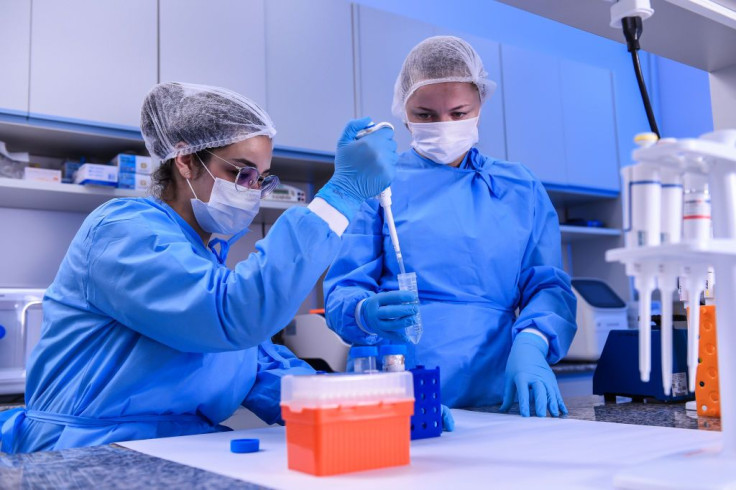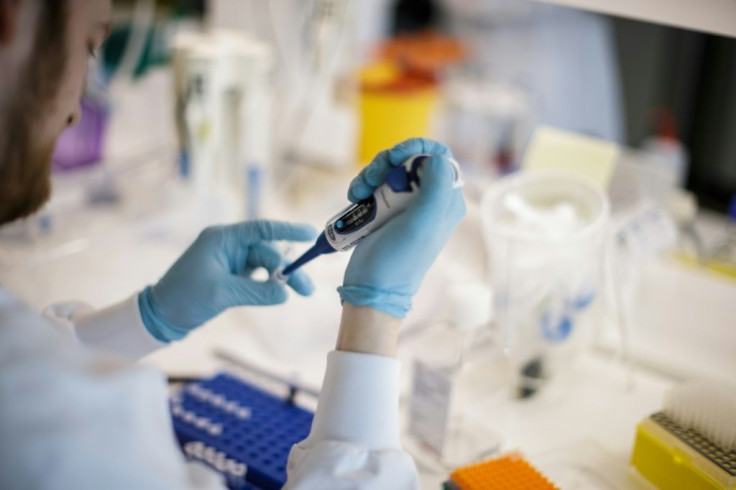WHO Announces 70 Potential COVID-19 Vaccines; 3 Human Trials On-going
Pennsylvania's Inovio Pharmaceuticals, Massachusetts' Moderna Inc., And HongKong-Based CanSino Biologics, Develop Lead Vaccine Candidates

KEY POINTS
- WHO: 70 vaccine candidates, 3 subjected to human trials
- Inovio, Moderna and HongKong's CanSino produced leading vaccine candidates
- Inovio and Moderna use DNA vaccine technology
- Inovio vaccine uses skin-deep shots
- NIH uses Moderna vaccine
- Moderna uses intramuscular shots
- Bloomberg: researchers race to make vaccines available to public within the year
The World Health Organization announced the development of 70 potential coronavirus vaccines with three of them already being subjected to human trials.
According to the New York Post, WHO said that two U.S. pharmaceutical firms, Moderna in Massachusetts and Inovio in Pennsylvania, are involved in clinical trials while an overseas company, CanSino Biologics in HongKong is collaborating with the Beijing Institute of Technology to conduct other human trials.
Sixty-seven other companies are also working to develop a vaccine, and one of them is the “drug giant” Pfizer Inc.
WHO has identified 70 potential vaccines in the works worldwide, with 3 already beginning human trials. The vaccine candidate in the most advanced stage is one being developed by Chinese company CanSino Biologics and the Beijing Institute of Biotechnology. pic.twitter.com/wqhRaCQ4Q1
— BFM News (@NewsBFM) April 14, 2020
Another New York Post article reported that most of the vaccines being developed follow the concept of destroying the spike proteins that cover a virus which helps it to invade human cells and since many work in different ways, it is important to develop various vaccine options.
“The good thing is we’ve got a bunch of candidates,” Dr. Anthony Fauci, the NIH’s infectious diseases chief, said during a podcast for the Journal of the American Medical Association Wednesday.
In the same report, the vaccine developed by Inovio packaged a piece of the virus’ genetic code inside a piece of synthetic DNA and when this fusion is injected as a vaccine, the human cells would serve as factories to make multiple harmless copies of these proteins, signalling the body to produce antibodies against them, priming the immune system if ever the real coronavirus comes along.
Inovio research and development chief Kate Broderick drew an analogy of the process as giving the FBI a wanted poster so “it can recognize the enemy”.
The company had already developed these vaccines to be injected as “skin-deep shots” instead of the usual deeper jabs, but because a synthetic DNA is too large to penetrate human cells, Broderick said that researchers need to hold an electrical device above the injection spot to send a little zap to the cells and let the pulse allow the vaccine to penetrate and do its work.
Inovio’s research is gearing up to test two doses of its vaccine codenamed INO-4800 in 40 healthy volunteers at the Kansas City research laboratory and the University of Pennsylvania.
The company is also working with Chinese researchers to begin a similar study in that country.
Although DNA vaccines are new technology, Inovio had developed similar types of vaccines for other diseases that have passed the safety testing and according to University of Pennsylvania’s Dr. Pablo Tebas, at least one of these vaccines showed promising proof that skin-deep injections somehow increased the immune system’s antibody production rate.
Inovio Pharmaceuticals’ race to create a vaccine began when the genetic sequence of COVID-19 was posted online by Chinese scientists just weeks after the outbreak was identified. https://t.co/tJfgmAnJ00 pic.twitter.com/kawgGgbtZb
— 60 Minutes (@60Minutes) March 22, 2020
Meanwhile, the U.S. National Institutes of Health also developed a vaccine and had performed safety testing last month in Seattle with two-thirds of the study’s participants receiving the first of two needed doses.
The New York Post reported that the NIH’s vaccine was developed by Moderna Inc., and although it works similarly as the Inovio vaccine, it is differentiated by the use of a genetic code called messenger RNA and is injected deeper into the muscle.
Collaborations with Johnson & Johnson and Moderna are meant to prepare the companies to produce vaccines in mass quantities if a safe and effective option is approved. https://t.co/sgPn827XA8
— The Scientist (@TheScientistLLC) April 4, 2020
Both vaccine candidates do not use the actual virus so there is no chance of infection upon being given a shot and the vaccines are quicker to manufacture than traditional shots.
Researchers are racing to develop and get the vaccines out to the market within the year which, according to a Bloomberg report, is a feat considering these vaccines take more than a decade to be made available for public consumption.

© Copyright IBTimes 2024. All rights reserved.




















